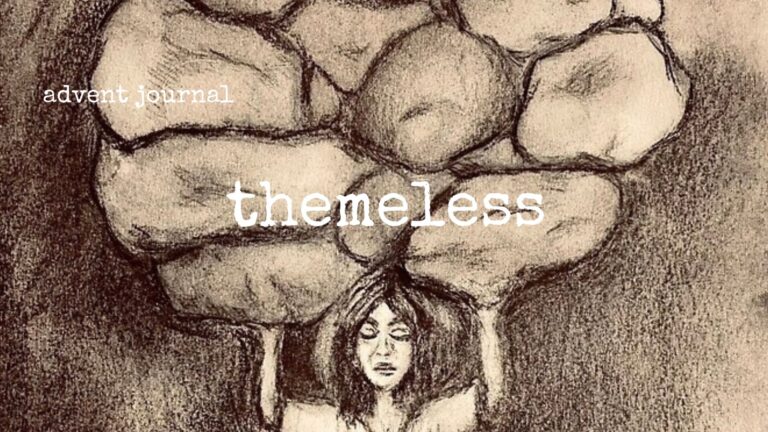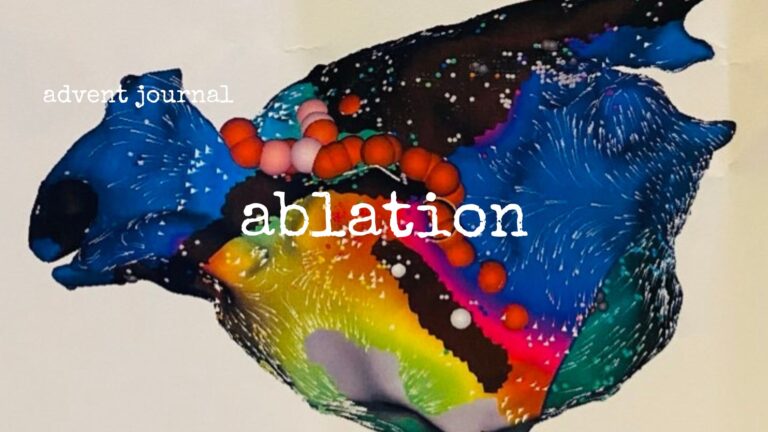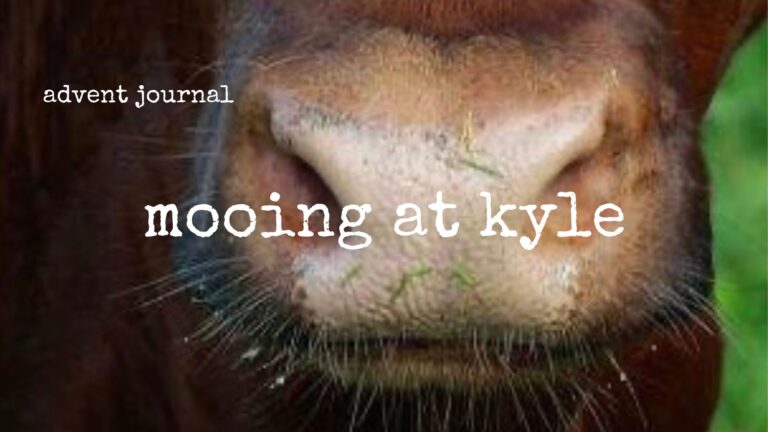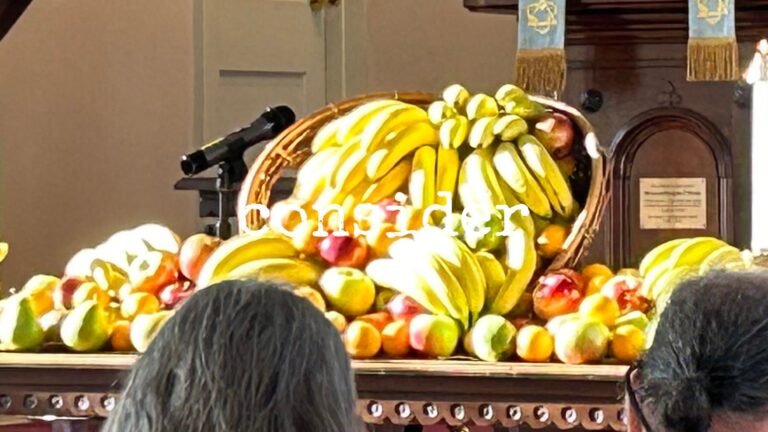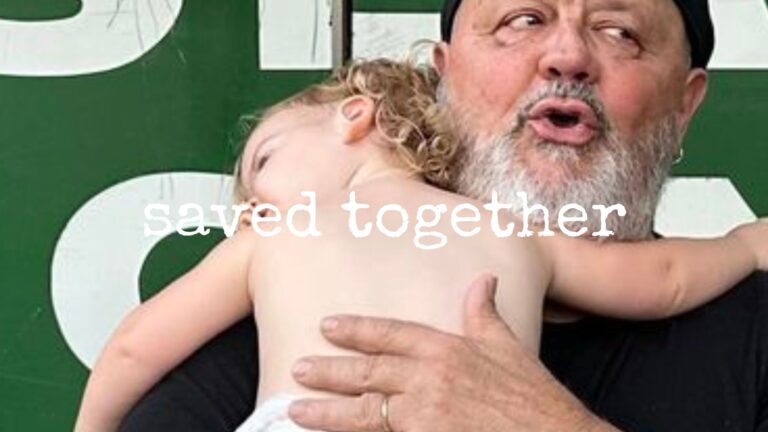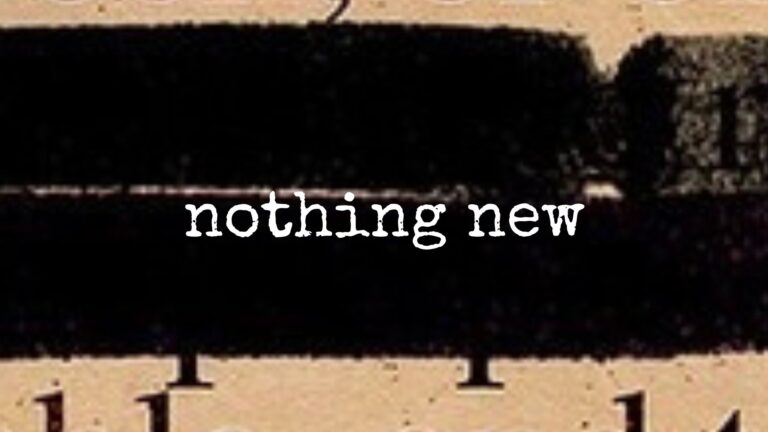The woman in my poem from a couple of nights ago made it into my sermon today. She has still been on my mind.
___________________________
Sometimes when I look at the lectionary passages I wonder about the committee that put it together. I learned this week that the Common Lectionary for Protestant churches only came about in 1983 and was revised in 1992. I didn’t realize it was so new. Part of the idea behind it is that the scriptures for each week are somewhat thematic, which is difficult, whether we are talking about the Bible or about life because neither fits easily into thematic systems.
We are in the third year of the three-year cycle and, at least for Advent, the chosen passages are heavy on foreboding and warning about what is coming, when it comes to the applied theme, as though the point is what’s coming and not where we are right now. But, regardless of what’s coming, we don’t get to be anywhere but where we are right now—here in the middle of everything, without a clarifying theme.
As most of you know, I went to the hospital on Thursday for my ablation.
They called me on Wednesday and told me to be there at 8:30 am, so Ginger and I did as they asked. It did not take long to get checked in and then they took me to the pre-op ward where they said it would be about forty-five minutes to an hour. They came back three more times and said the same thing until I finally went into surgery around 1 pm.
I was frustrated and tired, but I also knew I needed to get my heart back in rhythm, so I waited.
Some time after we arrived, a woman was put in a room (well, a small space with a separating curtain) across from us. I didn’t even know she was there until she became vocal about her frustration and said, loudly, “I want to leave.” Everyone in the ward was there because of some heart issue that needed correcting. But whatever concern she had that had brought her in was overwhelmed by her fear and anger. She was determined to leave.
A doctor came to talk to her but did more talking than listening, maybe because she was startled by the woman’s resolve, or frustrated because she couldn’t fix the situation. I don’t know. But it became a power struggle. When the woman persisted, we could hear the doctor say, “You’re being rude,” which didn’t help things.
Then a nurse came and listened first and then told the woman what she needed to do to leave the ward, which she did. Both Ginger and I were saddened by what happened because the woman looked so despairing as she left. The whole scene was sad.
She has stayed on my mind as I worked on this sermon and thought about our lighting the Peace Candle this week because she was not at peace with herself or with her circumstances. I’ve been trying to figure out how to preach a sermon that would mean something to her—and, hopefully to us as well.
As I said earlier, life, in the moments we are living it, doesn’t necessarily fit nicely into a theme, whatever the theme is. We tell stories that make sense of it when we can look back and see connections that weren’t so apparent in the moment. We look back at the stories surrounding Jesus’ birth and retell them to focus our hearts, but it I imagine Mary or Joseph or some of the others must have thought, “I want to leave” as heavenly messengers appeared and their worlds crashed in around them.
They didn’t have an Advent wreath to tell them what week it was and which candle to light next.
Neither did Paul or the people in Philippi, which was a young fledgling congregation. All of the churches who received the letters in our Bible were first generation congregations. They didn’t know what church was. They didn’t have bylaws to guide them or minutes to read. They were people responding to God’s love and trying to figure out life together.
As confident as Paul sounded when he wrote, he was in and out of prison because of his actions and was also learning as he went. In almost every letter he sent, he began with a statement of gratitude similar to the one we read this morning: “I thank my God when I remember you, for you fill my life with joy.” And then he said, “This is my prayer: that your love might become even more and more rich with knowledge and all kinds of insight.”
His prayer reminds us that love is an act of will—something we do on purpose. And it is something we can practice. We can get better at it. We can grow in insight and tenacity.
One of the Advent figures every year is John the Baptist, whom the gospel writers say reminded people of the old school prophets who called people to straighten out crooked roads and make the rough places easy to travel through. After being on some rough roads myself lately, I hear those words as a call to love with insight and determination.
We do not have to go far to find folks who are hurting and who are not sure what is going to happen next. We just have to look around the room. And we need to risk asking questions of one another to find out what is going on, even as we need to risk asking for help even when we know no one can make all the pain go away. Perhaps the starting place is to first make sure we are vocal about our gratitude for one another and for the chance to be here together.
In this season, we are telling the story of God’s willingness to incarnate love so we would know we are not alone. As the angel said to Joseph, “Call him Emmanuel, which means God with us.” God is with us and we are with each other. Right here in the middle of it all. That gives me hope.
We light the candles and we sing the songs and we tell the stories not because they organize Advent into a cohesive system that answers all our questions and lets us know what’s coming. We do all of these things to remember God has chosen to be here in the middle with us, no matter what we are feeling or facing, no matter how badly we wish we could leave. God stays and invites us to do the same. Amen.
Peace,
Milton
